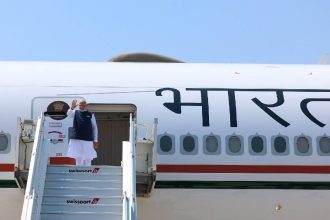
Kolkata: After the Pahalgam terror attack on April 22 which killed 26 civilians, the Centre has prepared a roadmap to remove fear from the minds of tourists and to reassure them about security in the Valley. In a bid to revive confidence in the tourism sector of Jammu and Kashmir, the central government will hold a two-day meeting in Pahalgam.
This high-level review meeting will be held in Pahalgam on July 7 and 8. Led by the Ministry of Culture and Tourism, the tourism secretaries of all the states will participate in the meeting. There, the state governments will present a proposal to develop one globally recognized tourist destination in their respective states.
The Jammu and Kashmir government is also preparing to build a memorial in memory of the victims of the Pahalgam attack within six months. It is noteworthy that after the Pahalgam attack, there has been a rapid decline in the number of tourists visiting the place. While more than 18,000 tourists visited Pahalgam in April, the number has fallen to only around 3,000 in June.
Currently, there are more than 10,000 hotel rooms in Pahalgam. About 5,000 more rooms are being added by building more hotels there. Along with this, six new tourist destinations have also been identified in Jammu and Kashmir which will be developed, and a Detailed Project Report is being prepared for this. Minister of Tourism Gajendra Singh Shekhawat has also visited Jammu and Kashmir recently, indicating the Centre’s efforts to restore trust and security in the Union Territory.
Tunnels in Jammu and Kashmir
In a bid to connect Jammu and Kashmir with the rest of India throughout the year, the Centre is going to revisit the financial clearances for two key tunnel projects, Sudhmahadev-Dranga and Singhpora-Vailoo. The renewed move comes as an effort to improve the region’s connectivity after the Pahalgam terror attack.
For more than a decade, both projects which are aiming to create an alternative link between Jammu and Srinagar via National Highway 244 are yet to receive clearance. According to a report by the Economic Times, the Public Investment Board (PIB) may take up the matter in its next meeting.










